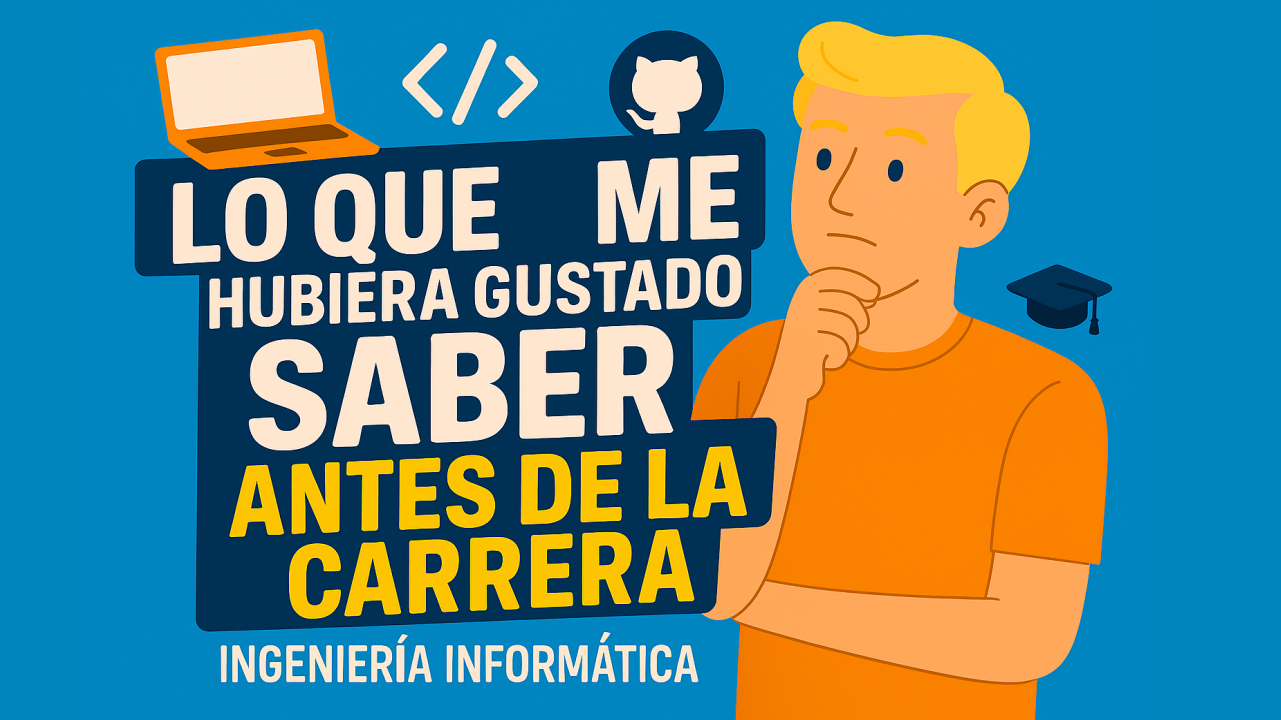
Miguel Aréjula Aísa
- 16/09/2025
What I Wish I Knew Before Starting Informatics Engineering
Practical advice for Informatics Engineering students: from using Git and GitHub early, to self-learning, building a portfolio, and preparing for the professional world.
This summer, I graduated in Informatics Engineering at the University of Zaragoza. Looking back, I’ve realized that the degree is not just about programming—it’s about learning how to organize yourself, stay motivated, and identify what’s worth studying independently.
In this post, I want to share practical advice I wish I had when I started. Whether you’re just beginning or already deep into your studies, these tips can help you make the most of your university experience.
Advice for the First Year
The first year is all about getting your bearings. You’ll encounter new subjects, professors and ways of learning. Here are some tips to help you navigate this initial phase.
Don’t Worry About Initial Grades
The transition from high school to university can be challenging: more subjects, heavier workloads and a faster pace. If your first grades aren’t what you expected, don’t panic. It’s normal. Focus on adapting and improving rather than stressing over early results.
Take Advantage of Office Hours
Office hours are an underrated resource. If you’re stuck, ask for help. Sometimes a single meeting with a professor can save you weeks of frustration. Most professors are more approachable than they seem.
Use Git and GitHub Early
One of the best habits you can develop is uploading your code to GitHub. Even if you’re just starting with small exercises, learning Git early will give you a significant advantage. It’s also a reliable way to back up your work and begin building your professional presence online. You can read my Git and GitHub guide for beginners to get started or watch my YouTube tutorial.
Advice for the Middle of the Degree
After one or two years, you’ll notice that university doesn’t cover everything you need. This is when self-learning becomes essential.
Learn Independently
Online courses, official documentation, and tutorials are all within reach. In informatics, the ability to learn on your own is what truly sets you apart. Don’t wait for the curriculum to catch up—explore topics that interest you and build your skills proactively.
My Experience with Web Development
For example, when I had to build a web project for a class, I learned React and Astro independently. A Udemy course and a few YouTube channels helped me get started. This not only helped me succeed in that subject but also prepared me for real-world projects.
Advice for the Final Years
In the last part of your degree, it’s time to look beyond university. It’s no longer just about passing exams—you need to start preparing for your career.
Build a Portfolio
Your portfolio is your business card. Don’t wait until graduation to showcase your work. Include relevant class projects, but also add personal ones. These projects often say more about your skills and interests than your grades ever could.
Focus on Projects That Reflect Your Interests
Whether you’re into AI, backend development, or design, build projects that highlight those interests. If there’s an area where you feel less confident, use personal projects as a way to practice and grow. This will help you stand out in job interviews and internship applications.
Final Thoughts
Informatics Engineering is a demanding degree, but it can be incredibly rewarding if you approach it with curiosity and initiative. Don’t limit yourself to just passing exams—build, explore, ask questions and connect with others. If you’re about to start, I wish you the best. It’s going to be challenging, but also one of the most exciting stages of your life.

